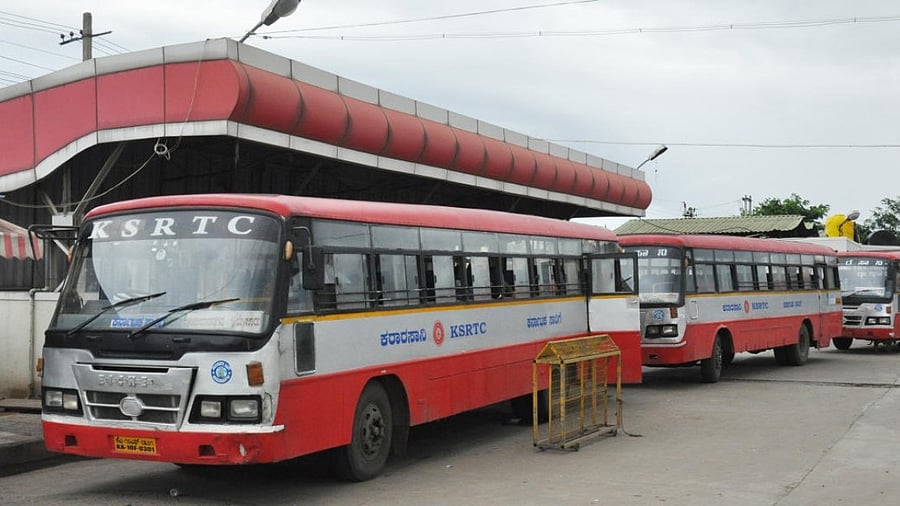
Representative image of KSRTC buses.
Credit: DH File Photo
New Delhi: The Supreme Court on Thursday gave its stamp of approval to the Karnataka government's 2003 law, which dismantled the KSRTC's monopoly over bus operations and opened the door for private players to address the burgeoning public transport needs.
A bench of Justices Vikram Nath and Prasanna B Varale upheld the validity Karnataka's 2003 law repealing previous 1976 legislation, which was enacted with the objective of acquiring privately operated contract carriages and bringing them under the control of Karnataka State Road Transport Corporation, to curb their alleged detrimental operation in the State and to bring them under public control.
On appeals filed by the KSRTC and others, the court held the repeal was not "an arbitrary act of legislative whim" but was backed by a clear statement of objects and reasons that identified the deficiencies in the existing regulatory framework and the necessity to liberalise the transport sector.
"The intention was to dismantle the statutory monopoly that the KCCA Act had created for the KSRTC and to open the door for private operators to address the burgeoning public transport needs," the court said.
The bench concurred the Karnataka High Court's division bench decision, saying the repeal Act is rooted in the practical realities of modern transport policy. It, however, the High Court's ruling that prohibited delegation of permit-granting powers to the Secretary, State Transport Authority.
The court felt contemporary challenges, such as increasing demand for public transport services, congestion in urban areas, and the need for efficient service delivery, necessitated a more flexible regulatory regime.
It held that Section 3 of the Karnataka Motor Vehicles Taxation and Certain Other Law (Amendment) Act, 2003, which repeals the (Karnataka Contract Carriages (Acquisition) Act, 1976) is constitutional. The court said the State Legislature has rightly exercised its power to repeal the Act.
The court dismissed an appeal filed by the KSRTC against March 28, 2011 judgment by the High Court.
It noted over the ensuing decades, the transport landscape in Karnataka underwent significant changes—urbanisation intensified, public transport demand grew, and it became increasingly evident that the restrictive regime established by the KCCA Act was contributing to an artificial scarcity of public transport services, particularly in rural and semi-urban areas.
The court rejected a contention by the KSRTC that repealing the KCCA Act was unconstitutional because it effectively overruled the previous decisions of the Supreme Court, which upheld validity of the 1976 law.
The court felt the argument failed to recognise the dynamic nature of legislative policy.
"Those Supreme Court decisions merely affirmed the constitutional validity of the KCCA Act at the time of its enactment; they do not bind the Legislature from modifying or repealing a statute when subsequent developments warrant a change in policy," the bench said.
The court also held the argument that the repeal should have required fresh presidential assent was misplaced.
"A repeal statute does not recreate the legal framework anew but rather extinguishes the earlier Act’s operative provisions; it is not subject to the same procedural requirements as an original enactment when it comes to the need for fresh assent, provided that the repeal falls within the legislative competence of the State," the bench said.
The court said the repeal of the KCCA Act was thus a deliberate policy decision aimed at fostering a more dynamic and responsive transport framework rather than an attempt to nullify well-established judicial pronouncements.
The apex court also confirmed that the Secretary of the STA is empowered to grant non-stage carriage permits (including contract carriage, special, tourist, and temporary permits) in accordance with Section 68(5) of the MV Act and Rule 56(1)(d) of the KMV Rules, subject to the limitations and conditions.
